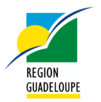With exceptional natural resources, important infrastructures and schemes as well as multiple, dynamic and ambitious actors, Guadeloupe has all the necessary assets characteristic of an innovative land endowed with a bright future.
In order to reinforce our archipelago’s attractiveness and competitiveness, the Guadeloupe Region fosters all sorts of innovation, along with research. For they are key to stimulate entrepreneurship, increase competitiveness among businesses and, from a more general perspective, strengthen the territory’s economic development.
The Guadeloupe Region is well aware that innovation as well as research are vital for building a future filled with great perspectives for our territory as a whole. As a result, the regional authority supports these main axes in view of preparing the future.
Consistently with the European Commission’s wishes, the Guadeloupe Regional Council committed, ever since 2007, to diagnosing the territory’s strengths and weaknesses as far as innovation and research are concerned. Interested parties were integrated to this approach, which helped establish a much needed situational analysis, but also provide relevant proposals.
Moreover, ever eager to identify the best strategy on the matter, the Guadeloupe Regional Council organised Regional Research, Innovation and Technology Transfer Assemblies (ARRITT) in November 2009.
Thanks to this concertation process involving all preponderant interested parties, the Guadeloupe Regional Council devised a Regional Innovation Strategy (SRI) that proves ambitious and willing to foster a strong dynamic.
The regional authority thus holds in its hands an efficient tool for implementing one of the main lines of actions comprised in the Regional Economic Development Scheme (SRDE) adopted in 2006: converting innovation into a pillar for developing new activities with a high added value.

